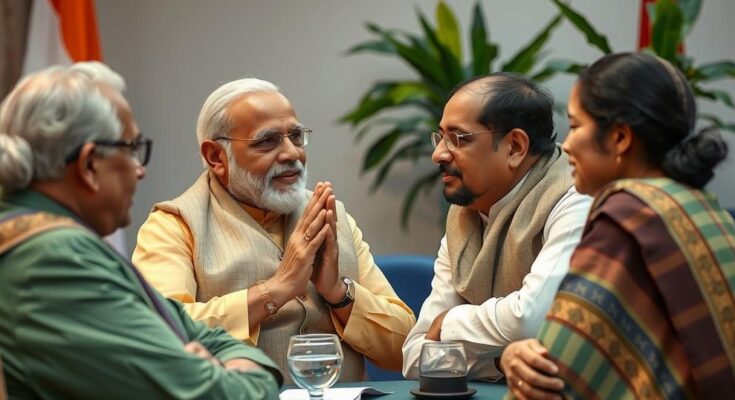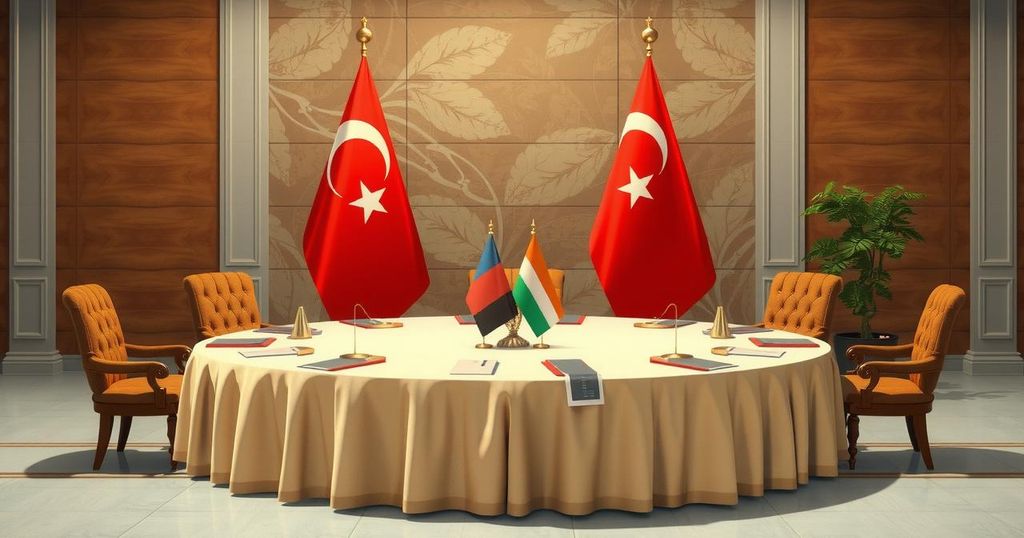PM Shehbaz Sharif’s meeting with Bangladesh’s Dr. Muhammad Yunus focused on enhancing trade and cooperation, raising concerns in India about changing regional dynamics. Both leaders emphasized improving historic ties and addressing past grievances from Bangladesh’s separation in 1971. India’s position as Bangladesh’s ally may be challenged as relations between Pakistan and Bangladesh strengthen, marking a significant shift in South Asian geopolitics.
During a recent bilateral meeting at the D8 Summit in Cairo, Pakistan’s Prime Minister Shehbaz Sharif and Dr. Muhammad Yunus, head of the interim government of Bangladesh, discussed enhancing trade and cooperation between their countries. This meeting raised concerns in India, which has historically viewed itself as a close ally of Bangladesh. Shehbaz discussed improvements in trade facilitation, including the elimination of stringent inspections for goods arriving from Pakistan, and the relaxation of visa processes for Pakistani travelers to Bangladesh.
The dialogue highlighted the longstanding historical, cultural, and religious ties between Pakistan and Bangladesh, with Shehbaz expressing Pakistan’s commitment to fostering closer cooperation. Dr. Yunus emphasized the importance of addressing unresolved grievances stemming from the 1971 separation of the two nations, indicating a desire to move forward by institutionalizing friendly relations. Both leaders acknowledged the potential for increased collaboration in various sectors such as trade, culture, and sports, noting the recent positive exchanges between the two nations.
Overall, the camaraderie displayed during this meeting signals a shift in regional dynamics that may challenge India’s influence in Bangladesh, raising alarms regarding the security and geopolitical balance in South Asia. The agreement to prioritize bilateral cooperation underscores the need for transparent and continuous engagement, reflecting a mutual interest in establishing amicable relations post-1971 separation.
In conclusion, the interaction between the leaders signifies a promising step toward enhancing Pakistan-Bangladesh relations, while simultaneously highlighting India’s concerns about regional stability and its position in South Asian geopolitics.
The meeting between Prime Minister Shehbaz of Pakistan and Dr. Yunus of Bangladesh took place against the backdrop of shifting geopolitical relationships in South Asia. Historically, India has played a significant role in Bangladesh’s emergence as an independent nation, but recent engagements between Pakistan and Bangladesh have led to concerns in New Delhi over a potential recalibration of alliances. The long-standing ties between Pakistan and Bangladesh date back to their shared history before the 1971 civil war, and efforts to revisit these connections signal a potential transformation in the regional landscape.
The meeting between PM Shehbaz and Dr. Yunus reflects a concerted effort to strengthen Pakistan-Bangladesh relations, utilizing historical ties for greater bilateral cooperation. Nevertheless, the implications of this warming relationship pose a significant concern for India, noting the evolving dynamics in South Asia. The dialogue represents a pivotal moment, suggesting potential complications for India’s geopolitical interests in the region as Pakistan and Bangladesh seek to deepen ties.
Original Source: dunyanews.tv




